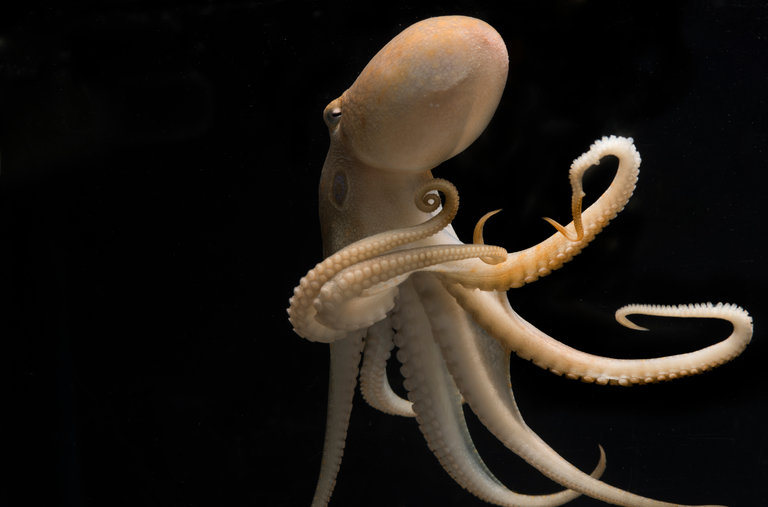Octopus are highly intelligent animals able to have short-term and long-term memories, as seen by their ability to solve puzzles and mazes. In the labs, octopus have also been trained to recognize different shapes and patterns.
Most of the time, when an octopus sleeps, its skin is pale and the muscles relax. However, from time to time, the animal will begin to contract, tighten the suction cup, move its eyes and change colour. An explanation for this is now presented in a new study, according to which, eight cephalopods have periods of active and passive sleep that alternate periodically, similar to humans. According to the researchers, it is reasonable for octopus to dream during the active sleep phases. The result is also interesting for the development of sleep.
The sleep of octopus has been studied and the scientists have observed how these animals change colour while they are resting, as well as the fact that their sleep is very similar to the REM (rapid eye movement) phase of mammals.
Scientists have found that octopus have alternating periods of “activity” and “quieting” in sleep, during the REM phase, brain activity is similar to when you are awake. The dreams you remember best happen in fact in the REM phase of sleep.
It was observed that the alternation of quiet and activity was repeated every 30 to 40 minutes.
During the quiet periods, the animals took on a pale colour and remained motionless, but during the active phases, the skin of the octopus became dark and their tentacles contracted. For about 40 seconds, they changed the colour and texture of their skin drastically, and their eyes moved very noticeably.
So, through this simple experiment, we realized that during the cycles animals actually sleep and I like to think that they actually dream too. In future studies, researchers want to record the neurological data of cephalopods to better understand what is happening while they sleep. They also want to clarify the role that sleep plays in the metabolism, thinking and learning of animals.
Alessandro Macaluso, III M
